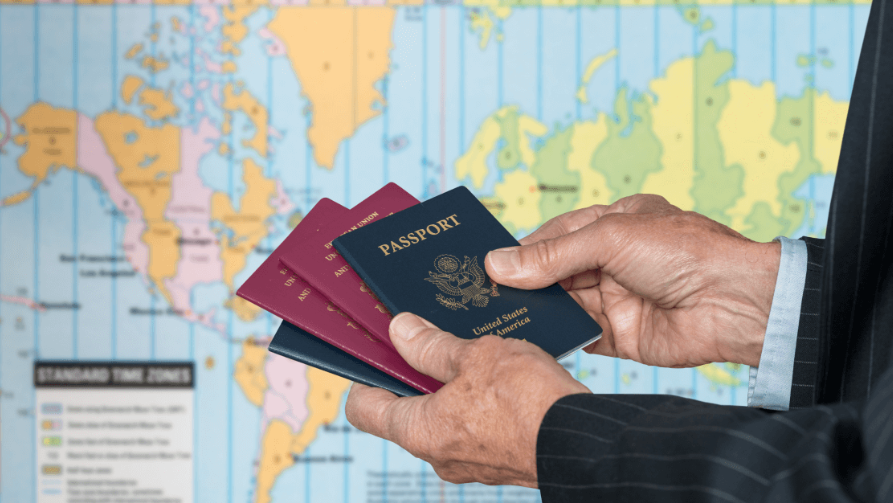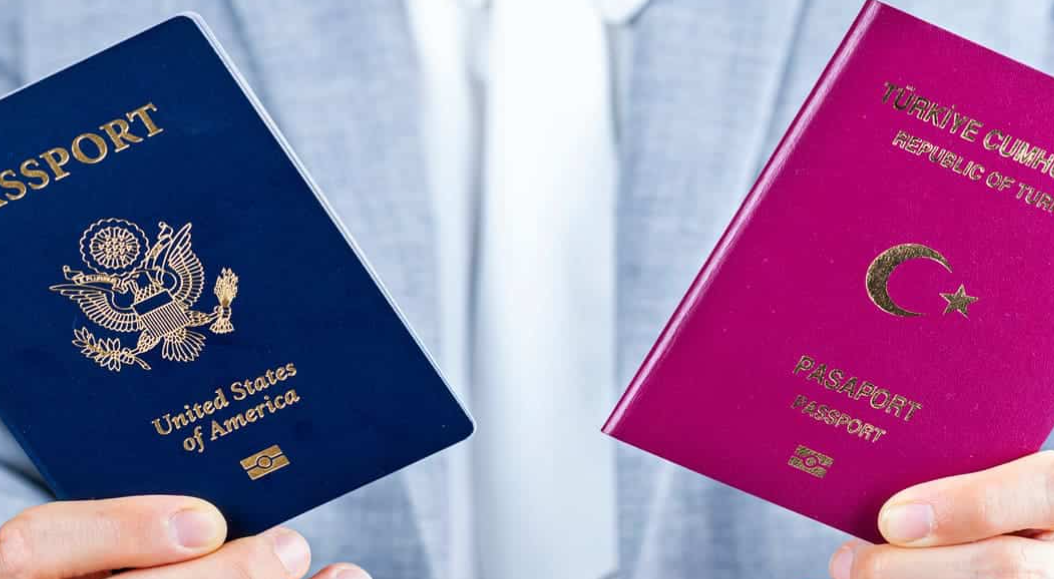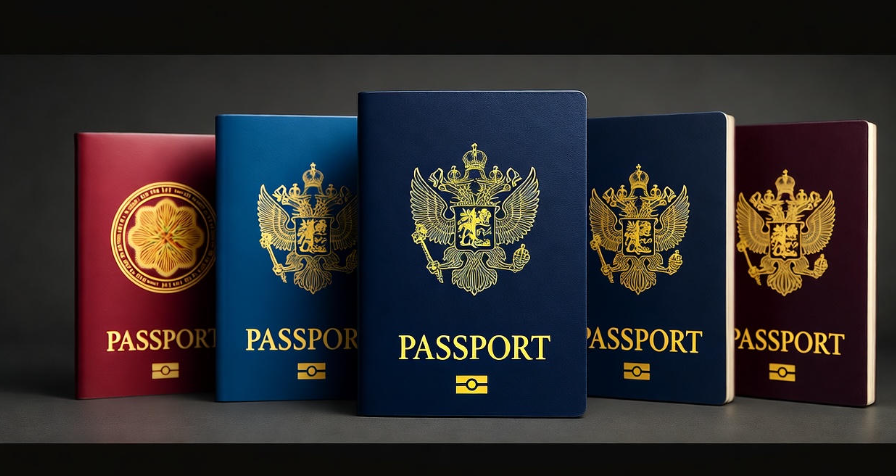Dual Residency
Can I have a dual residency exactly what does that mean?
Dual Citizenship Explained
Dual Nationality (Wiki link)
It is possible for a US citizen or Resident to be a dual citizen.
Think of having two passports in your pocket, each of which is a link to a different country? Or imagine yourself settled among the splendors of a foreign city, with your homeland coming to you. The examples above, these are the kinds of scenarios that dual citizenship and residency laws enable. As the world becomes increasingly connected, an increasing number of people are looking to obtain multiple citizenships or gain legal residency in another country. This guide delivers a straightforward, simplified explanation of everything you ever wanted to know about these critical issues.
What Does Dual Citizenship Mean, Really?
Dual citizenship occurs when an individual is a legal citizen of two countries at the same time. It’s kind of like being in two clubs at once. You are a citizen of each country, and as such you enjoy the advantages and face the responsibilities attached to both memberships.
If you have dual citizenship, two countries consider you a citizen. You do not necessarily have to apply for dual citizenship and may already have it by birth or by marriage. With dual citizenship though, comes not just one passport, but potentially two; the opportunity to travel to more places and work in other parts of the world without special permits, while also being able to vote in elections among other social services available in both countries. But you must also obey the laws of both countries, and may need to pay taxes in each as well, depending on their particular rules.
How People Acquire Dual Citizenship
There are various paths to dual citizenship, and each offers a different story:
Birth: Something that the number of two-citizenship-bearing people are born into. How a child is born in a country that gives citizenship to all who are born on its soil, removed by at least one generation from two people whose own native countries pass down citizenship through blood. For instance, a baby born in the United States to Italian citizens is automatically American and also Italian.
Marriage: In some places, marrying a citizen can make it easier and quicker to become one yourself. After getting married and completing other criteria like residing together for a specified amount of time, the foreign spouse could then apply for citizenship without renouncing their original nationality.
Naturalization: This is the way most adults become dual citizens. Residents may apply for citizenship without having to renounce their original one under some circumstances after living lawfully in a country for several years, speaking the language and passing a test about citizenship and good character.
Investment Programs: Many countries grant citizenship to individuals in return for substantial investment. These pathways demand outlays from purchasing property to giving substantial donations to public coffers.
Ancestry: Some countries, including the U.S., permit people to apply for citizenship based on their parents, grandparents or even great-grandparents’ nationality. Countries such as Ireland, Italy, Poland and Israel offer popular ancestry-based citizenship programs.
Countries That Welcome Dual Citizenship
Dual citizenship is not something every country agrees on. Some accept it more, some accept it less strongly and others prohibit it entirely. The response in each country springs largely from its history, culture and political values.
Global Attitudes Toward Dual Citizenship
- 85% Fully Allow
- 45% Limited Accept
- 25% Restrict
- 15% Prohibit
| Policy Type | Example Countries | Key Features |
|---|---|---|
| Fully Permitted | Canada, United States, United Kingdom, Australia, France | No limitations on dual citizenship |
| Conditionally Allowed | Germany, Austria, Denmark, Netherlands | Dual citizenship allowed under certain conditions (i.e. EU citizenship or birth) |
| Restricted | India, China, Japan | Requires renunciation of former country’s citizenship |
| Special Programs | Spain & South Africa | No Dual Citizenship unless a commercial agreement exists between both countries |
Disclaimer: Even if your current country permits dual citizenship, you need to verify whether the other country does as well. For it to be certain, the two nations must both accept dual citizenship.
Residency Rights Explained Simply
Residency is not citizenship, but the two are often confused. Residency grants you the legal right to live in a country, but does not give you citizenship status. Citizenship is like owning your house, while residency is akin to renting under a long-term lease.
Types of Residency Status
Opinions vary. According to your circumstances and how long you intend to stay, countries offer various types of residency:
Temporary Residency: This is generally the initial move of individuals who are moving to a new nation. Temporary residency permits, which usually run from one to five years, must be renewed. Students, workers on employment visas and people moving in to join family members frequently begin with temporary residency. While living and often working in the country is possible during this time, you may be subject to some restrictions on access to public benefits.
Permanent Residency: The right to live permanently in a country without necessarily being a citizen. Permanent residents have all of the same rights and freedoms as citizens, excluding one crucial distinction: they may not cast a vote or run for public office. But permanent residents are generally unable to vote in national elections or hold certain government positions. Popular long term residency programs are Canada’s (PR Card) and US (Green Card, which also allows for naturalization granting full citizenship), Australia.
Special Residency Solutions: A number of countries have crafted special residency solutions for certain groups. Nomad visas allow digital nomads, or remote workers, to live in countries such as Portugal, Estonia or Costa Rica while working for foreign companies. Retirement visas provide special residency to older people with regular income in countries as far-flung as Mexico, Thailand and Panama. Golden visa programs award residency to those who make substantial investments in real estate or businesses.
Why Multiple Citizenships Offer You More Than Just Plan Bs
Why do you have dual citizenship? The benefits can be life-changing and manifold:
Travel Freedom: You can travel much easily without the requirement of a visa if you hold dual citizenship. If you are a citizen of a power passport country, you can travel to many countries visa-free. A second passport is also a safety net when one passport has visa restrictions toward certain countries.
Work Visa: Residents are eligible to undertake employment without sponsorship from an employer or work permit. And for someone who has the citizenship of, say, both America and the European Union, it means they can work anywhere across dozens of countries on multiple continents with no barriers whatsoever. Such flexibility is critical in our interconnected global economy.
Education Access: Citizens are frequently eligible for in-state tuition at state colleges and can apply for scholarships and financial aid that noncitizens are not able to access. Higher education is also much cheaper for residents of many European nations than it is for outsiders — including students from the United States.
Right to Healthcare: Many countries offer public health care services. When you’re a citizen of two countries, it’s possible that you could use the health care system in both. Which means you have more options when seeking treatment and possibly lower costs.
Property Ownership: Some countries have limitations on foreign property ownership, but citizens can purchase land and real estate without difficulty. Dual citizenship eliminates these hurdles and may also grant access to citizen-only investment opportunities.
Political Involvement: Citizens have a voice in politics, can vote, run for office and so on. As a dual-citizen you have the ability to choose sides in two different national democratic processes.

The Stuff You Need To Know – Challenges and Responsibilities
Tax Responsibilities: This is probably the trickiest part of holding dual citizenship. Some countries, such as the United States and Eritrea, tax their citizens on worldwide income no matter where they reside. This can result in dual citizens being required to file tax returns in both countries, and having the same income taxed twice there even though there are usually treaties in place to eliminate double taxation.
Taxes are just one of a few significant responsibilities that dual citizens must meet:
Conscription Countries: Many countries, including South Korea, Israel, Greece and Turkey, require military service from citizens. A number of countries apply this even to people who have two citizenships and were born and raised overseas. Please be sure to verify military service requirements before pursuing citizenship in certain countries.
Legal Matters: When you travel, you’ll need to enter and exit every country using that country’s passport. You can’t seek diplomatic protection in one citizenship while you’re in the other. If you’re in trouble with the law, each country considers you a resident of their own, not someone protected as a foreigner.
Tough Paperwork: You manage two citizenships, you keep several documents as up-to-date (passports, ID cards and all kinds of certificates). You have to keep up with shifting laws and requirements in either country.
Security Clearances: Some government jobs and security clearances are more difficult to get with dual citizenship, in part because of potential conflicts of interest or divided loyalties — particularly if your second citizenship is in a country that the United States considers politically sensitive.
-
Want to avoid long waiting times? Check out: Tips to Avoid Delays in Visa Processing
The Road From Residency to Citizenship
Step 1: Obtain Residency
Step 2: Meet Time Requirements
Step 3: Pass Tests & Interviews
Step 4: Receive Citizenship
For the vast majority of people, the path to dual citizenship starts with gaining residency in one’s second country of choice. This process typically includes these stages:
First, you obtain legal residency based on work, family ties, study or investment programs. Under your residency (5- to 10-year) blanket, you must remain in legal status continuously. All countries require you to spend a minimum number of days in their borders each year to maintain your resident status.
As you become eligible for citizenship, you will need to compile volumes of documentation establishing your history of residence, financial independence from public assistance programs, clean criminal record and integration into society. Most countries have language proficiency tests, civic knowledge tests and personal interviews. From application to final approval, the process may take between one to three years.
Fast-Track Choices: A few countries provide expedited ways to be a citizen. Portugal must be lived in for only five years, Belgium allows applications after five years and Ireland grants citizenship after just five years of legal residence. It typically decreases wait times greatly if the immigrant marries a citizen.
Considerations for Children and Families
Families with duality of citizenship have unique considerations, especially with respect to children. Because when two parents from two countries have a child, that kid may automatically be counted as a citizen of both places. This is a tremendous opportunity, but it also comes with responsibilities.
Parents are required to register their children’s births in both countries and acquire the documents needed by each country. Some countries have a limited window of opportunity for claiming citizenship through descent, and parents can be forced to act quickly to protect their children’s rights.
As children get older, families need to determine which citizenship paperwork they should show for different reasons. Parents must think about which passport(s) to use; in which schools their children should enroll; and what youth programs they might want their kids to attend. And in some countries, when people reach adulthood, they must decide to be a ‘dot’ or a ‘not’, that is which country they should keep – other example: which passport should an adult hold for life?
Investment and Golden Visa Programs
Investment-based programs can also offer a quicker way to residency, and sometimes even citizenship, for those who have the means. The demand for such programs is growing worldwide.
| Country | Program | Processing Time | Requirement for Citizenship |
|---|---|---|---|
| Portugal | Golden Visa | 5 years | €280,000 – €500,000 |
| Spain | Golden Visa | 10 years | €500,000 |
| Malta | Citizenship by Investment | 1-3 years | €690,000 – €1,000,000 |
| Greece | Golden Visa | 7 years | €250,000 |
These schemes usually involve investment in real estate, government bonds or businesses, or charitable donations directly to national development funds. Costly though they are, their pace and preclusion of uncertainty can’t be matched by the traditional routes. But due diligence is also important since rules are not only often changed, but some programs are the subject of scrutiny by international bodies.
Recent Changes and Future Trends
The landscape of dual citizenship and residency is always changing quickly. There are a few key trends changing these:
Digital Nomad Evolution: The COVID-19 outbreak sped up the normalization of remote work, and dozens of countries have introduced special visas for digital nomads. These programs acknowledge that today’s workers can live anywhere and contribute to an economy via spending, without occupying local jobs.
Tightening of Investment Programs: Following a period of expansion, some citizenship-by-investment programs are under scrutiny. The European Union has leaned on its member states to shut down or reform golden visa programs over fears of security and tax avoidance. Several Caribbean countries have raised investment thresholds and strengthened vetting measures.
The Fallout of Brexit: After the U.K. kissed its E.U. membership goodbye, there was a flood of applications for citizenship from British people who want to keep their European rights. At the same time, EU citizens living in Britain applied for permanent residency here and to become British citizens in order to guarantee their status.
Increasing Acceptance: Although not free, the tide is running in favor of dual citizenship as worldwide mobility becomes part of daily life. Countries that used to ask for renunciation are rethinking its policy in order to keep cultural ties with diaspora and lure the talented migrants back.
Practical Steps to Get Started
If you’re thinking of applying for dual citizenship, or trying to get residency in another country, here’s how to get started:
Eligibility Research: Learn possible eligibility for the countries you are interested in through descent, birth location or current residence. Not everyone is aware that they have citizenship rights through grandparents or great-grandparents.
Review The Laws From Both Countries: Make sure both your current country and target country permit dual citizenship. Get official confirmation, too, by reaching out to consulates or immigration lawyers as opposed to just online sources.
Begin to Gather Documentation: Begin to put together birth and marriage certificates, proof of ancestry etc. The documents often need to be translated and certified, then carry an apostille stamp if they are to be used abroad — processes that can take months.
Know The Tax Consequences: Seek advice from specialist international tax advisers before becoming a dual citizen. Knowing what your future tax burden is going to be on funds converted now saves surprises.
Hire a Professional: The immigration laws are very complex and there are several changes that occur. If the case is complicated, it could save time, money and stress to work with a reputable immigration attorney or consultant.
Calculate Costs: In addition of consideration for the investment spend, one must account for application fees and legal costs as well as translation, travel and ongoing maintenance costs such passport renewals.
Timeline of the Plan: Citizenship processes typically span years. Establish achievable goals and markers instead of looking for instant gratification.
Pro Tip: Participate in online forums and communities with those going through the same process for citizenship or residency. These communities offer an invaluable storehouse of first-hand experience, tips, and emotional support through what can be a long and at times frustrating process.
Common Mistakes to Avoid
There are a lot of mistakes people make when attempting to obtain dual citizenship or residency. Stay clear of these costly mistakes:
Do not mistakenly think that just because a country has no problem with dual nationality, the same situation applies for your chosen country. Each country has independent policies. There have been cases where people had inadvertently lost their old citizenship (for example, by naturalizing in a country that requires renunciation) without checking the rules of their home country first.
Make sure to not let that continuous residence go by the wayside. Short visits to your home spaces can reset the clock on eligibility. Be sure to maintain proper records of your travel dates and meet the minimal presence rules.
Don’t use the wrong passport while traveling. Always go in and out of a country on that country’s passport if you are citizen. Using your second passport can cause legal issues and raise questions about your immigration status.
Government officials, potential employers with the need for security clearances and financial institutions should never be deceived about your dual citizenship. Transparency avoids legal problems later on.
Don’t make no mistake, international tax compliance is a challenging endeavor. Some filing requirements are onerous, and penalties for errors or omissions can be exacting, particularly for American citizens who have to report foreign bank accounts and assets.

Frequently Asked Questions
Q: Can I have citizenship in more than two countries?
Yes, there is no international restriction on the number of citizenships one person may hold. Three, four or more citizenships are nothing unusual for many people depending on their specific life situations. But whether people are permitted to hold dual nationalities varies between each country’s internal laws. The logistics of dual (and additional) citizenships become more complicated the more nationalities you have – especially re: taxes and traveling.
Q: If I get the citizenship of another country, will I lose my original citizenship?
This entirely depends on the law of your native country. Your country — just like ours (and the US, Canada, UK and Australia) — doubts that there is any such thing as “too many” nationalities. But in other countries, including China, Japan and India, you will usually be expected to renounce your old citizenship when you naturalize some place else. Be sure to check on the rules of your home country before pursuing naturalization in a different country.
Q: What is the average time to become a citizen through residency?
The timing is different in each country. Most countries want you to be a legal resident for five to 10 years before you can apply for citizenship. Following application, processing time adds an additional one to three years. The path to citizenship can take longer. Depending on your destination, you will have to wait five years elsewhere (Portugal and Ireland) or possibly 10 or more (Switzerland). Being married to a citizen usually shaves off multiple year wait times.
Q: Are children automatically granted dual citizenship if their parents have different nationalities?
Not automatically in all cases. It is up to each law of each country, whether or not children will receive dual citizenship. In many countries, children born on the territory are eligible for citizenship irrespective of parents’ nationality; in other countries, only children with at least one parent holding citizenship can receive it. In the common case that one parent is a citizen of a different state, and if both countries pass citizenship on to children born from such citizens, making them not only nationals but citizens under either jurisdiction’s laws; then the child has or could easily acquire dual citizenship if its parents claim them as such and register it appropriately.
Q: What exactly is a green card and what is the difference between having a green card and being a citizen?
A green card is a form of permanent residency status in the United States that permits you to live and work in the country indefinitely, but it does not mean you are an American citizen. Green card holders may not vote in federal elections, cannot hold certain government jobs, lose the status if they commit serious crimes or abandon residency and must renew their cards every 10 years. Citizenship is permanent and cannot be revoked except in the rare fraud case, allows voting, and never needs renewal. Once you’ve held your green card for about five years, you may apply to become a citizen through the process of naturalization.
Q: Are there some countries which don’t accept to have a dual citizen in any case?
Yes, there are some countries that strictly do not allow dual citizenship. China does not acknowledge dual citizenship, making Chinese who voluntarily become foreign citizens lose their Chinese nationality. Japan also has the option for adults to keep one citizenship if they obtain another. Many other Middle Eastern nations, such as Saudi Arabia and United Arab Emirates, also have a general prohibition on dual citizenship, albeit with exceptions for particular situations. As always, you should research for actual laws and regulations since policies are updated periodically.
Q: If I am a citizen of two countries can one of them deny me entry?
For the most part, countries cannot refuse entry to their citizens. If you’re entering one of the countries where you are a citizen, then you must use your passport from that country and you can’t be refused entry. But there can be complications if you use the wrong passport or try to enter as a tourist when in fact you’re a citizen. Countries that don’t acknowledge dual citizenship may ask why you hold another passport, but they must still grant you entry as their citizen.
Final Thoughts
Holding dual citizenship and/or residency rights allows a world of opportunity in our global society. Whether you’ve always wanted to live on the Mediterranean coast, progress your career in an international hotspot, get back to where it all began or have a safety net that lets you follow life wherever it may take you, a second citizenship or residency will make it happen.
But these opportunities are full of great responsibilities and complications. Success requires thorough research, careful planning, and often professional guidance to navigate the complex legal and practical considerations involved in obtaining and maintaining dual citizenship or residency status.




